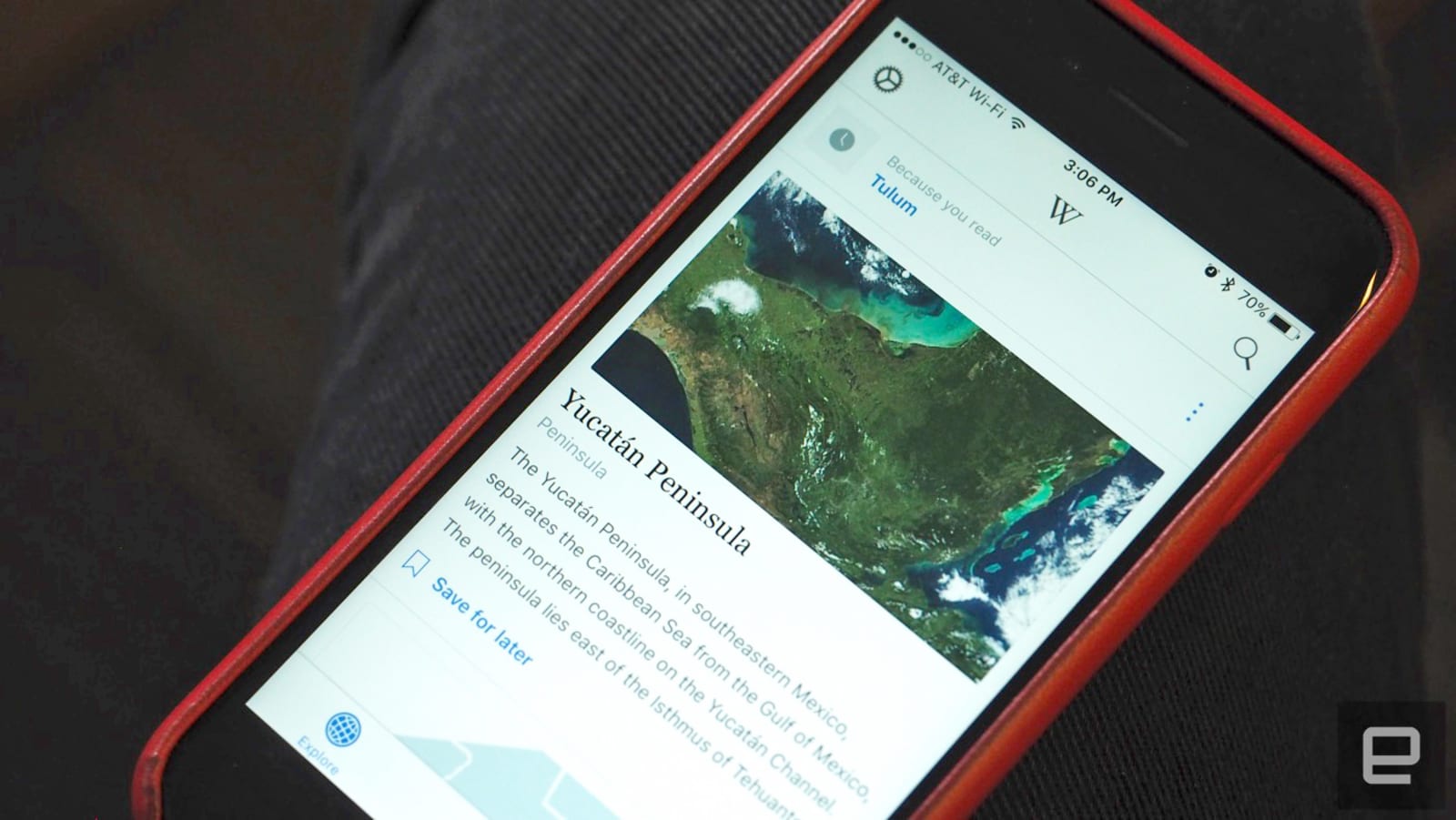Wikipedia explains how those late-night reading binges happen

Everybody's prone to falling down a Wikipedia rabbit hole, clicking link after link until it's been hours since you've started our journey. Now the foundation has begun releasing monthly data dumps for English, Russian, German, Spanish and Japanese Wikipedias that can give you a better understanding of how readers end up navigating from one article to the next. The Wikimedia Analytics team worked on being able to release datasets every month after seeing how the similar set of info released in 2015 led to a number of scholarly research studies.
Based on the data they compiled in November 2017 -- you can download that right here along with data from December -- most clicks come from external sources like Google. That's not exactly surprising since one in three people visit a topic on Wikipedia after it gets mentioned in the media. Fans of The Crown, for instance, flock to the website after watching an episode. Sixty percent of the links people visit are internal links, though, which means most people tend to view another article when they visit. For example, looking up net neutrality led people to visit former President Obama's, open-source software's and the first amendment's pages:
The Wikimedia Foundation says the datasets can help researchers understand Wikipedia reader behavior. If you're simply curious what other people who have the tendency to spend hours on the website are reading, though, don't worry -- you don't need to have a scientific reason to access them.
Source: Wikimedia
via Engadget RSS Feed "http://ift.tt/2rkfQfO"
Comments
Post a Comment